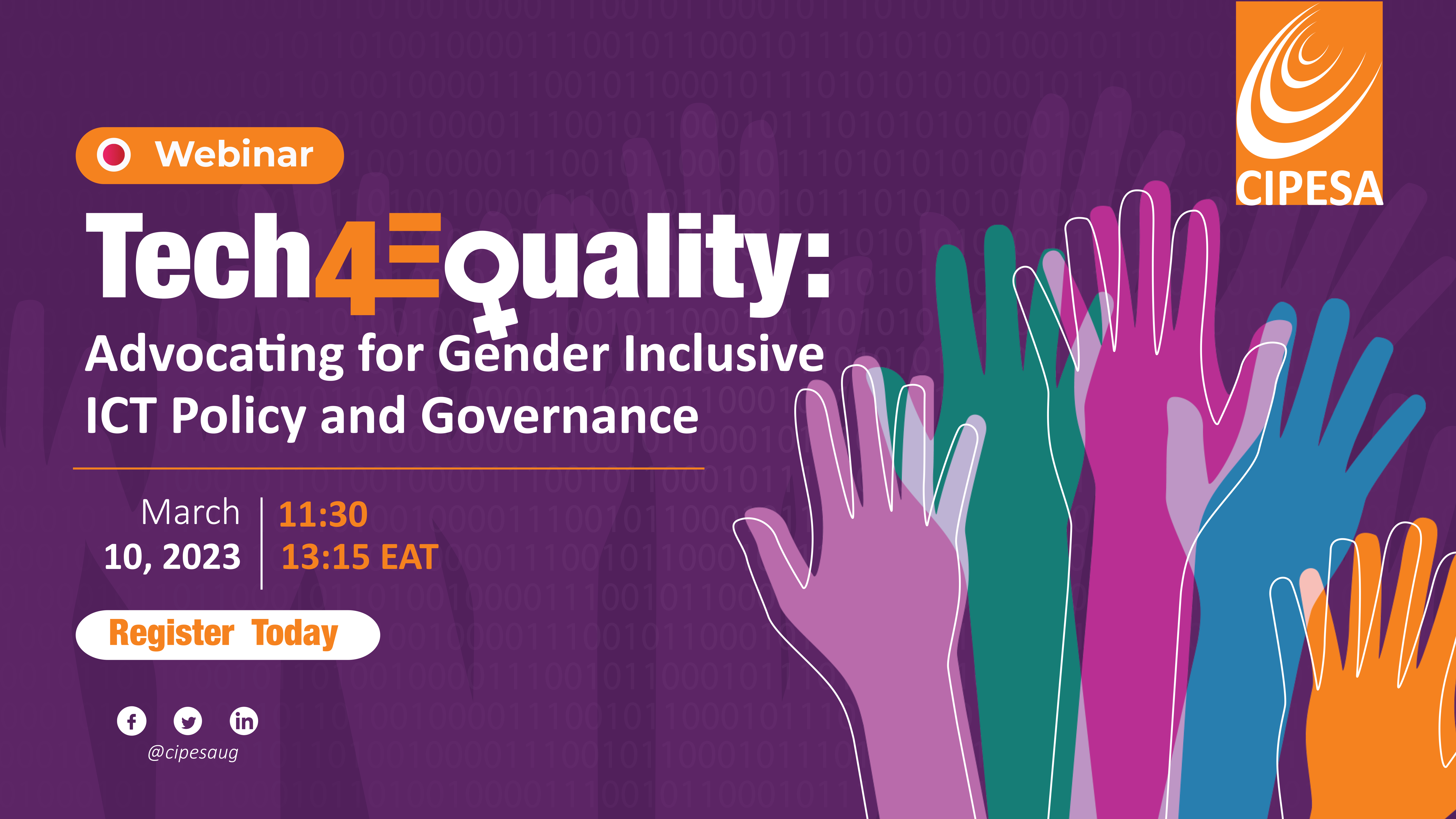By Alice Aparo |
On March 8, 2023, the International Women’s Day (IWD) will be commemorated globally under the theme “DigitALL: Innovation and technology for gender equality”. Set to recognise and celebrate women and girls who are championing the advancement of transformative technology and digital education, the day will explore the impact of the digital gender gap on widening economic and social inequalities. This year’s IWD will also spotlight the importance of protecting the rights of women and girls in digital spaces and addressing online and technology-facilitated gender-based violence.
Across Africa, the digital gender gap has remained a constant concern. This has impacted the potential of women and girls to be active digital citizens. Despite the promise of inclusion offered by technology, African women remain on the lower rungs of internet access and use. Further, while some national strategies attempt to address increased gender equality in internet access, this cannot be achieved where progressive policies – including policies which uphold women’s safety online – are not being implemented.
The International Telecommunications Union (ITU) notes that if women are unable to access the internet and do not feel safe online, they are unable to develop the necessary digital skills to engage in digital spaces. This also diminishes their opportunities to pursue careers in science, technology, engineering, and mathematics (STEM). Although women comprise half the world’s population, they are grossly underrepresented in STEM careers. The United Nations (UN) reiterates this and adds that “bringing women into technology results in more creative solutions and has greater potential for innovations that meet women’s needs and promote gender equality”. Their lack of inclusion, by contrast, comes with massive costs. This calls for more policy efforts, investment and advocacy that advances women and girls in innovation and technology, particularly in Africa.
According to the Harvard Business Review, only 2.3% of venture capital funds globally were invested in women’s tech startups in 2020 – far less than the funds invested in men’s startups. This move is against the United Nation Sustainable Development Goal 5 which aims to achieve gender equality and empowerment of all women and girls, and Goal 9 which focuses on building resilient infrastructure, promoting inclusive and sustainable industrialization, and fostering innovation.
Empowering women and girls through the provision of meaningful access to the internet and digital technologies can enhance the realisation of Sustainable Development Goal 5 to achieve gender equality and the empowerment of women and girls. Further, building their digital skills and awareness levels could undoubtedly provide them with opportunities to start businesses, and to access education, health, social and financial services. Also, it could be a powerful tool to enable women and girls to realise their rights, participate in governance and decision-making processes, freely associate, assemble, and express themselves on issues that are important to them, and develop relevant content for their empowerment. In addition, increasing women’s representation in leadership and decision-making roles within the ICT sector will also remain a critical need.
Webinar
In commemoration of this year’s IWD, the Collaboration on International ICT Policy for East and Southern Africa (CIPESA) will host a webinar to discuss what is shaping and influencing the innovation and technology landscape in Africa and what needs to be done to advance gender Inclusive ICT policy and governance.
When: Friday, 10 March 2023
Time: 11:30 (EAT)
Where: Zoom (Register)
This initiative builds on past CIPESA work documenting and aimed at addressing the inclusion of women in the digital society including through advocating for improved affordability, access to information, political participation, media representation and safety online.

